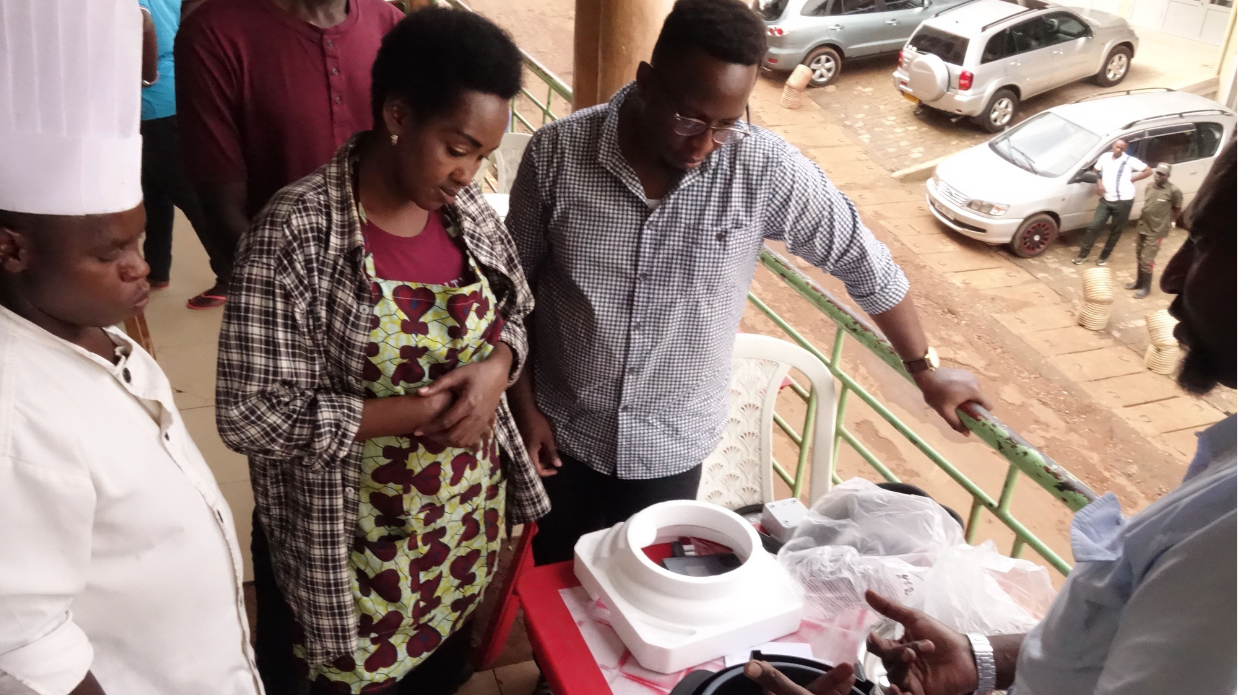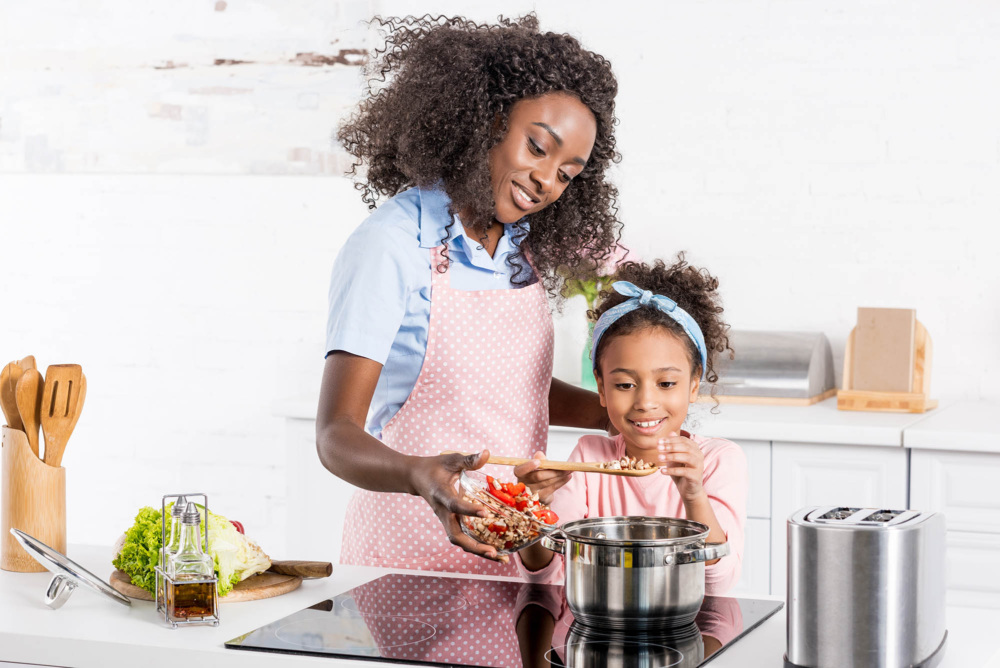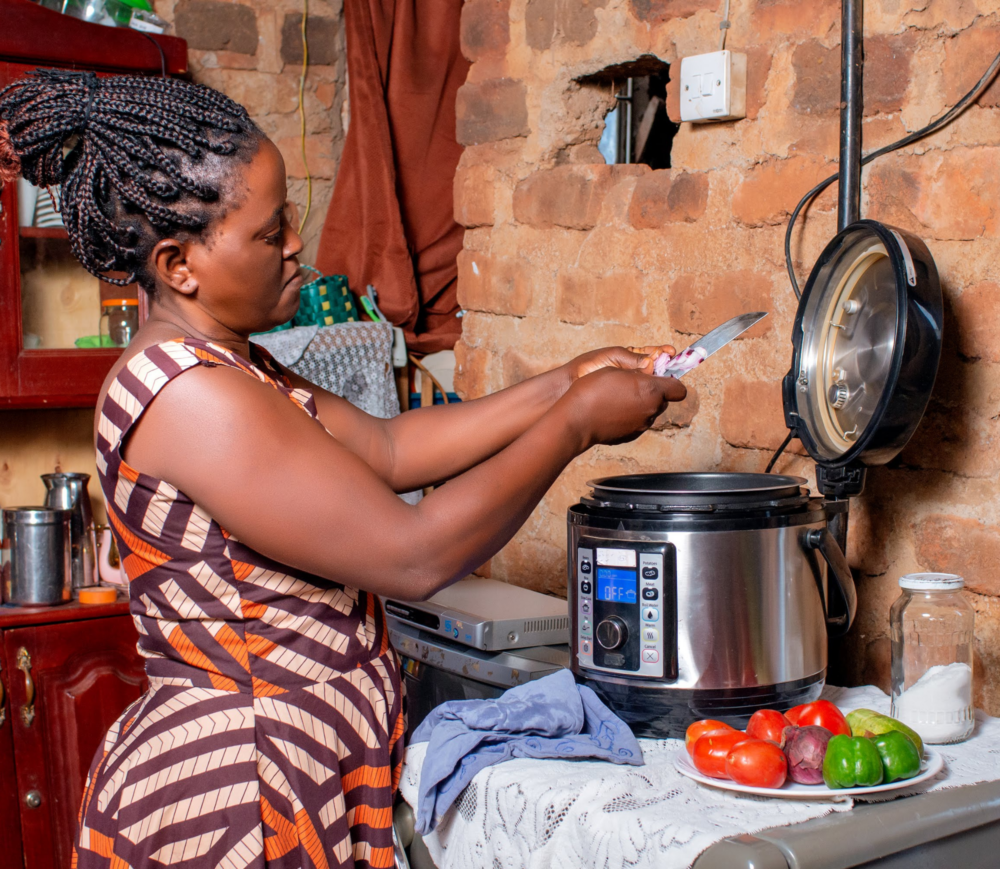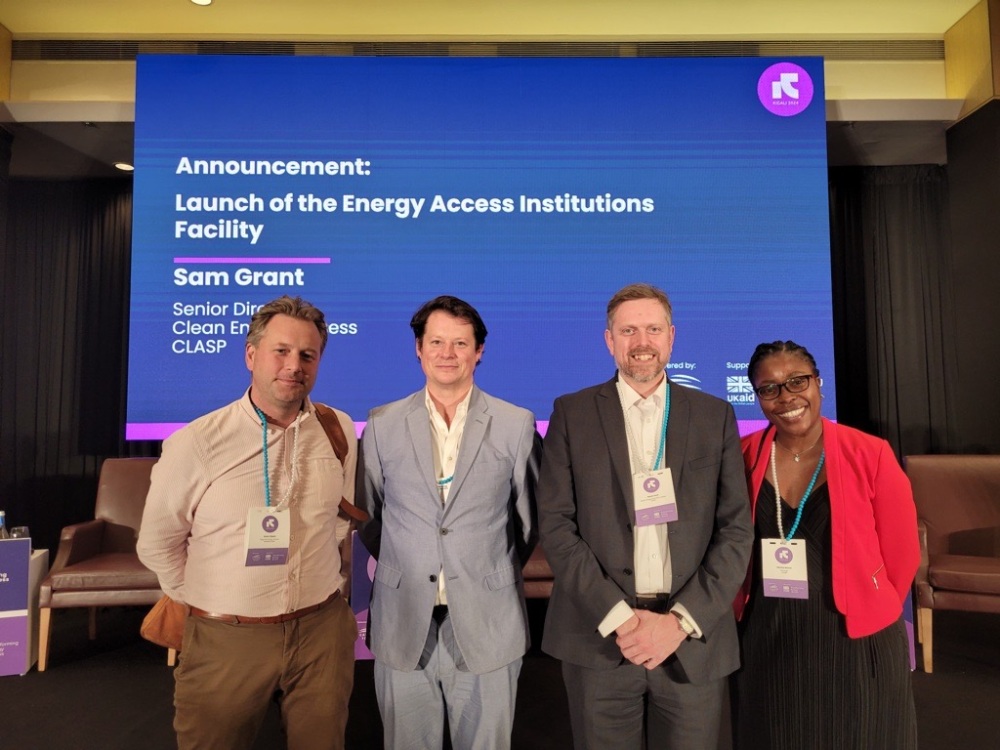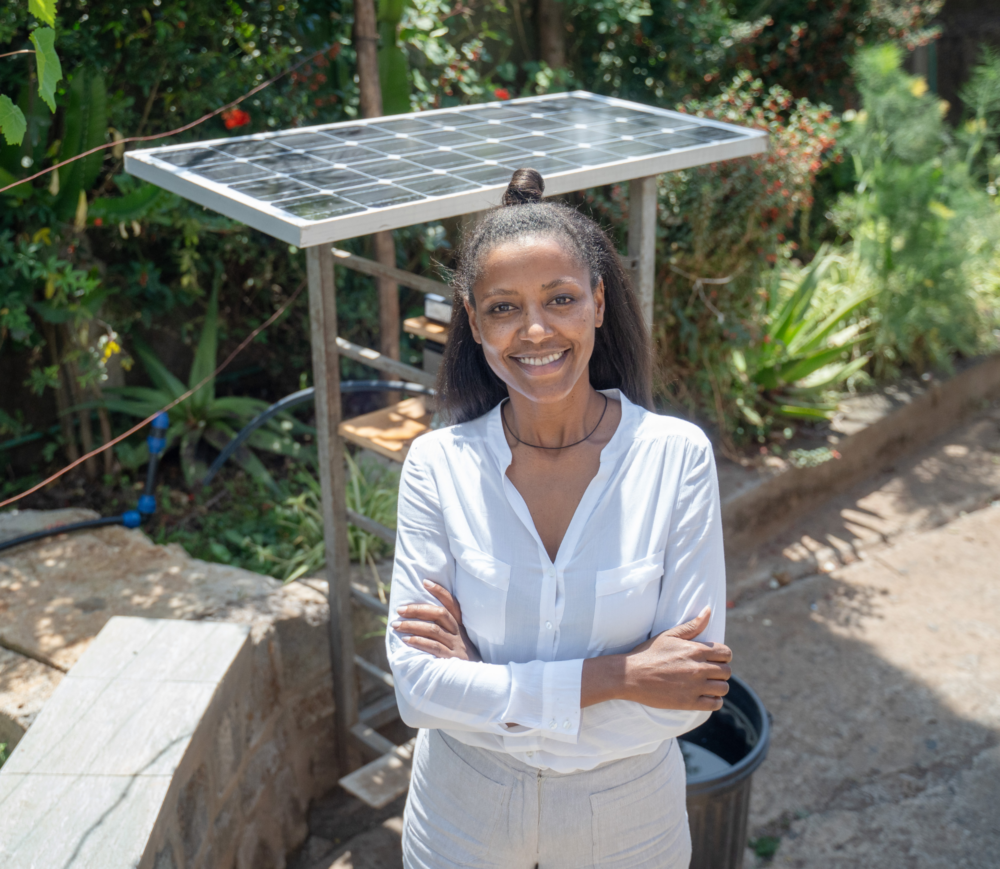CLASP’s Impact Working with Africa’s Clean Cooking Sector
In advance of CLASP attending the IEA Summit on Clean Cooking in Africa, here’s a short synopsis of CLASP’s clean cooking initiatives across Africa.
Modern, clean and efficient cooking solutions, such as electric pressure cookers and induction cookstoves, deliver proven health, economic, and social benefits – even in off-grid areas. Despite this, over 900 million people in Africa still lack access to these life-improving appliances.
CLASP and our partners are engaged in various initiatives across the continent to enhance the affordability and adoption of clean cooking appliances. These aim to reduce indoor air pollution, reduce the risk of fire, promote gender equality, and demonstrate the energy and cost savings associated with clean cooking practices.
Clean Cooking Improves Health and Air Quality
Household air pollution from cooking with polluting fuels is responsible for an estimated 3.2 million premature deaths annually. A significant portion of these deaths occur in low- and middle-income countries. CLASP aims to reduce the incidence of respiratory diseases and environmental damage linked to household air pollution by promoting the increased adoption of efficient, clean cooking appliances. CLASP is doing this through a range of programs such as the Global LEAP Induction Cooktops and Electric Pressure Cooker Competitions. These showcase sustainable alternatives to traditional biomass cookstoves as well as harmful fuels like kerosene. CLASP invites companies developing and supplying induction stoves to submit an expression of interest for their products to undergo usability testing in Kenya and India.
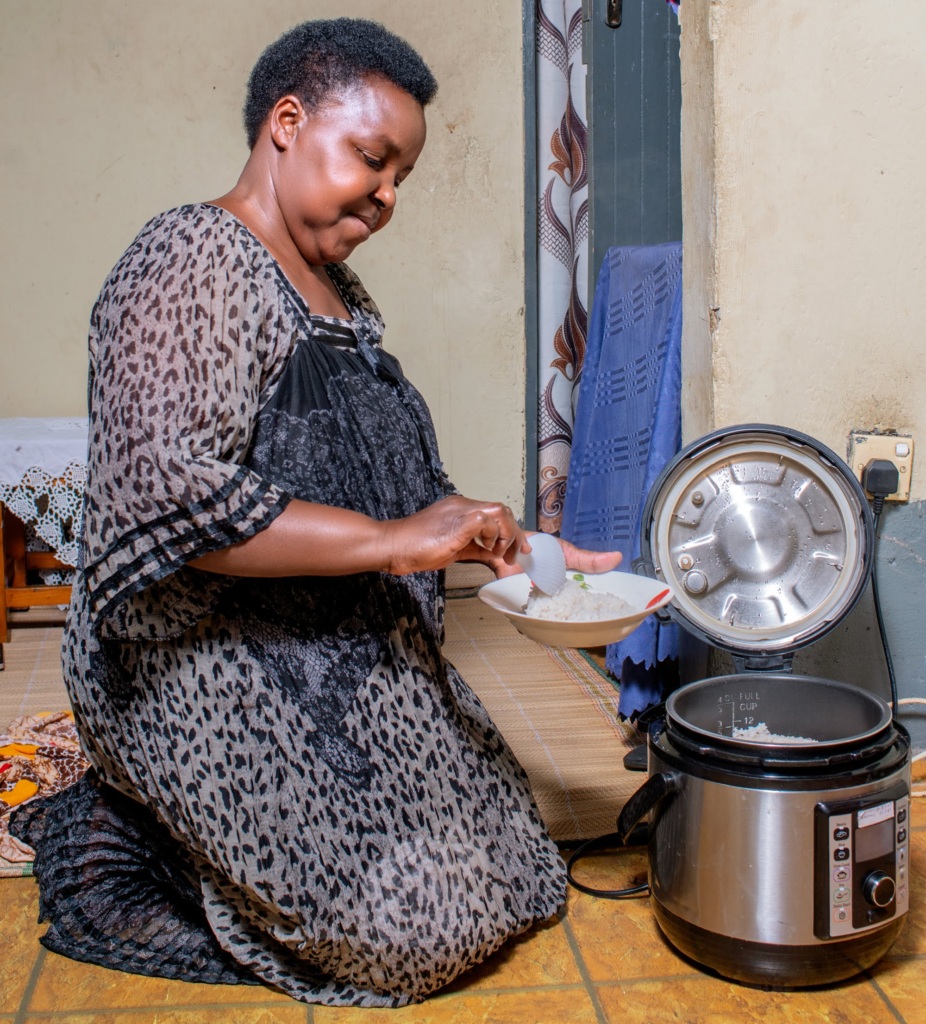
Product Testing Builds Consumer Awareness and Trust
Modern cooking appliances suitable for off-grid homes and businesses are still a developing market. This causes variations in quality, durability, and performance among the available products. CLASP conducts performance testing in household and business contexts to evaluate product performance and publish the results. This ensures consumers know which products to invest in, and manufacturers have clear benchmarks to improve the design and development of cooking solutions. This promotes energy-efficient, cost-effective, and high-functioning appliances on the market.
For a busy Kigali restaurant, a safer way to cook
Innovative Financing Drives Supply and Affordability
Many clean cooking appliance businesses in Africa struggle to expand their customer base and scale their operations due to a lack of finance and the high costs associated with importing quality products. To address this, CLASP and our partners created initiatives such as the Higher-Tier Cooking Component (HTCC) and the Productive Use Financing Facility. Both these programs provide procurement subsidies and help companies bulk-buy electric cooking equipment, lowering their purchasing price and unlocking new markets. In addition, the companies test the performance of these products through VeraSol to verify product quality.
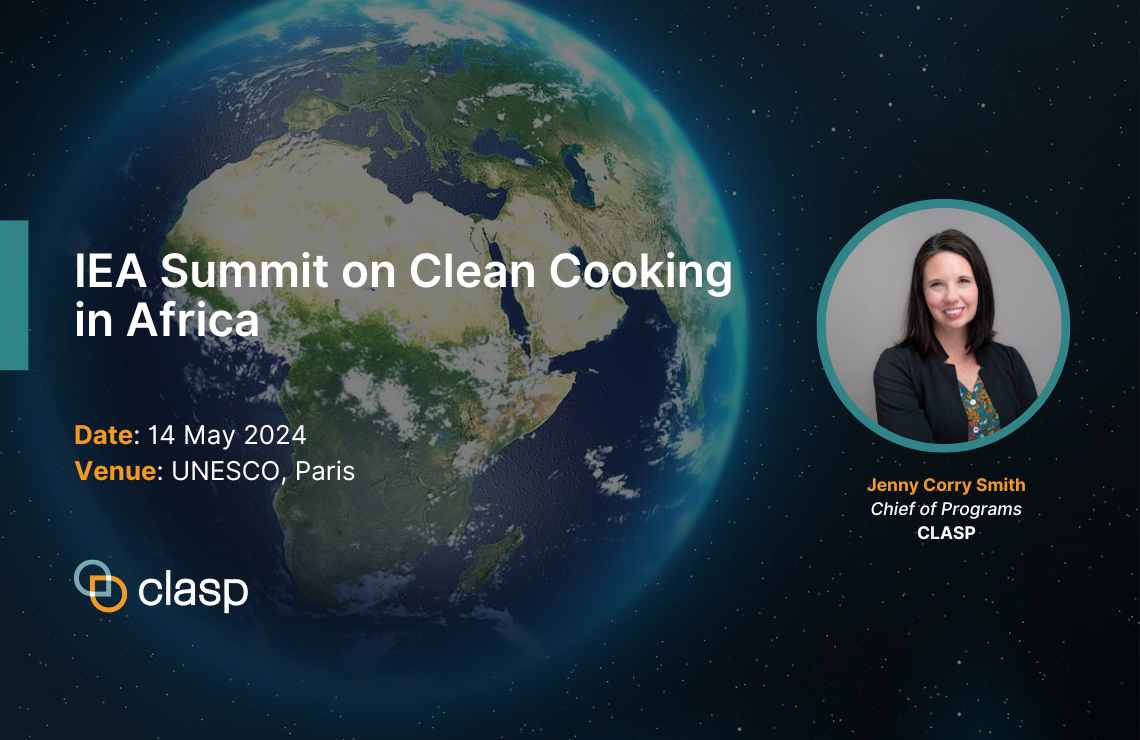
CLASP’s Chief of Programs, Jenny Corry Smith, attended the IEA Summit on Clean Cooking in Africa on 14 May 2024.
Update 14 May 2024:
At the close of the Summit on Clean Cooking in Africa, CLASP, along with a host of national governments, international organizations, civil society organizations and companies signed The Clean Cooking Declaration: Making 2024 the Pivotal Year for Clean Cooking. This declaration pledges to make clean cooking a priority, and enhance efforts toward achieving universal access for all.
The declaration emphasizes the importance of developing financing, policies and partnerships on the topic. The IEA also announced the mobilization of USD2.2 billion in related public and private sector pledges. Clean cooking is seen as essential in support of achieving Sustainable Development Goal 7, access to affordable, reliable, sustainable, and modern energy.

